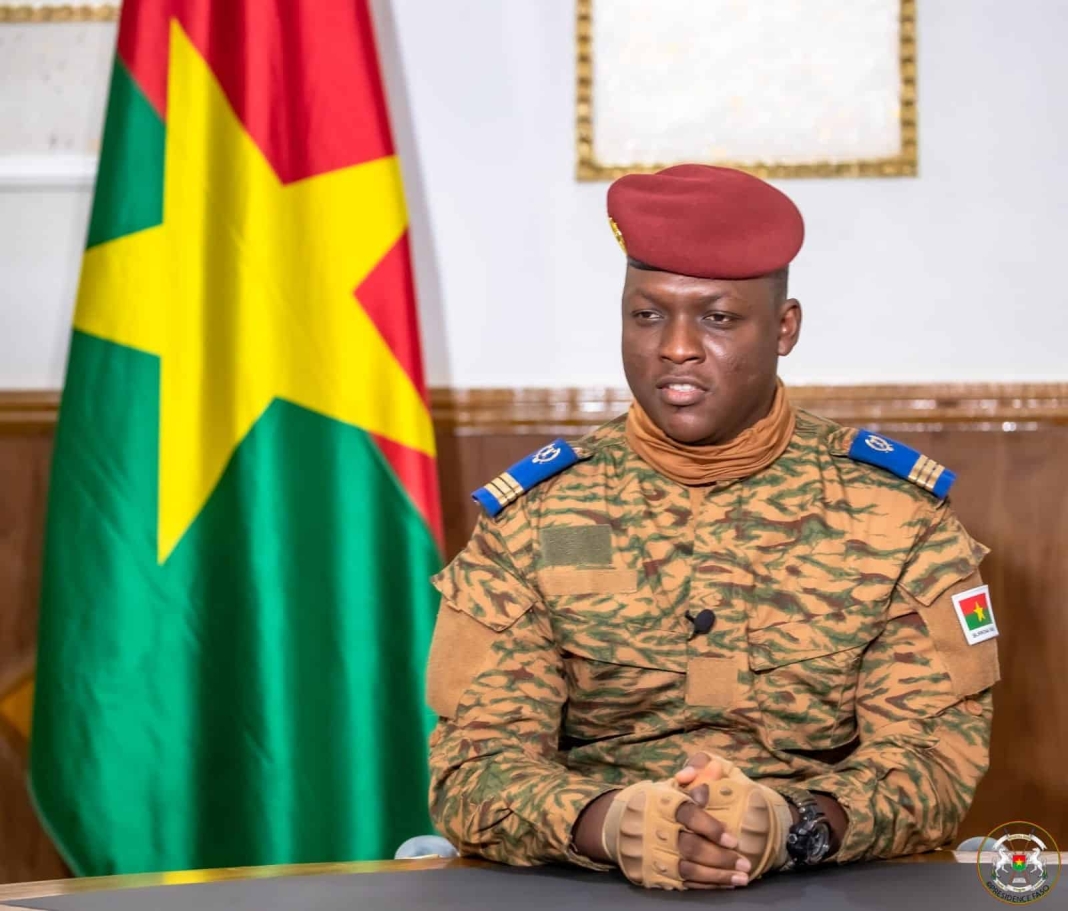While attending the May 9 military parade in Moscow, Burkina Faso’s transitional president, Captain Ibrahim Traoré, emphasized the symbolic significance of the event, which he said serves as a reminder of the role Africans played in World War II. He praised the strength of ties with Russia, particularly in the areas of security, education, healthcare, and trade.
According to Traoré, Burkina Faso aims to deepen scientific exchanges and train more engineers and technicians as part of a broader strategy to build a national industrial base and achieve self-sufficiency. “We want to establish technical universities similar to those in Russia on our own soil,” he stated.
The head of the transition government also noted that Burkina Faso is projecting a 5.6% growth rate in 2025, driven by the gold mining sector as well as an ambitious agricultural push aimed at self-sufficiency and exports. “We plow the fields of new farmers free of charge and invest in water management to enable multiple harvests a year,” he explained.
The country also plans to reclaim control of its mining industry and focus on local resource processing. In addition, a key strategic goal is to halt the importation of products like wheat, for which Burkina Faso has already begun domestic production.
On the security front, Ibrahim Traoré warned that what is happening in Burkina Faso “is not terrorism—it’s imperialism.” He accused unnamed foreign powers of backing the armed groups operating in the region, asserting that “foreign trainers are teaching terrorists how to handle explosives and drones.” In his view, these conflicts are being sustained in order to stifle the Sahel’s development.
AES currency: a strategic path to sovereignty
When asked about the ongoing integration of AES member states—Burkina Faso, Mali, and Niger—Captain Traoré underscored that “a common AES currency is a necessity.” Although no specific timeline was given, he confirmed that the process is already underway. Efforts are in progress to harmonize the diplomatic, economic, and security policies of the three member countries. “We’re moving methodically because each country is at a different stage,” he added.
The Burkinabè president also confirmed that other nations have expressed interest in joining the alliance, though he stressed that any expansion would have to wait until the foundation is fully solidified. He criticized what he described as France’s condescending attitude toward African countries, denouncing paternalistic approaches and biased coverage by Western media. He called for “an awakening of African consciousness” and urged local media outlets to play an active role in reshaping the African narrative.


